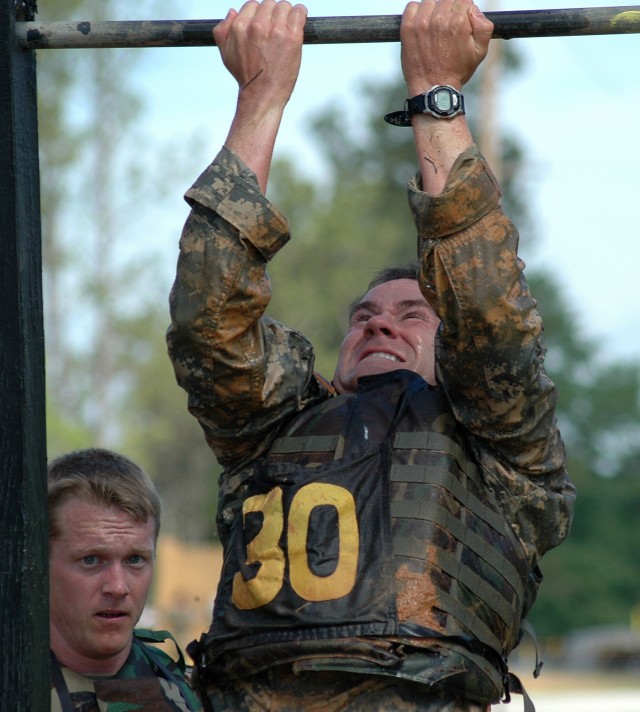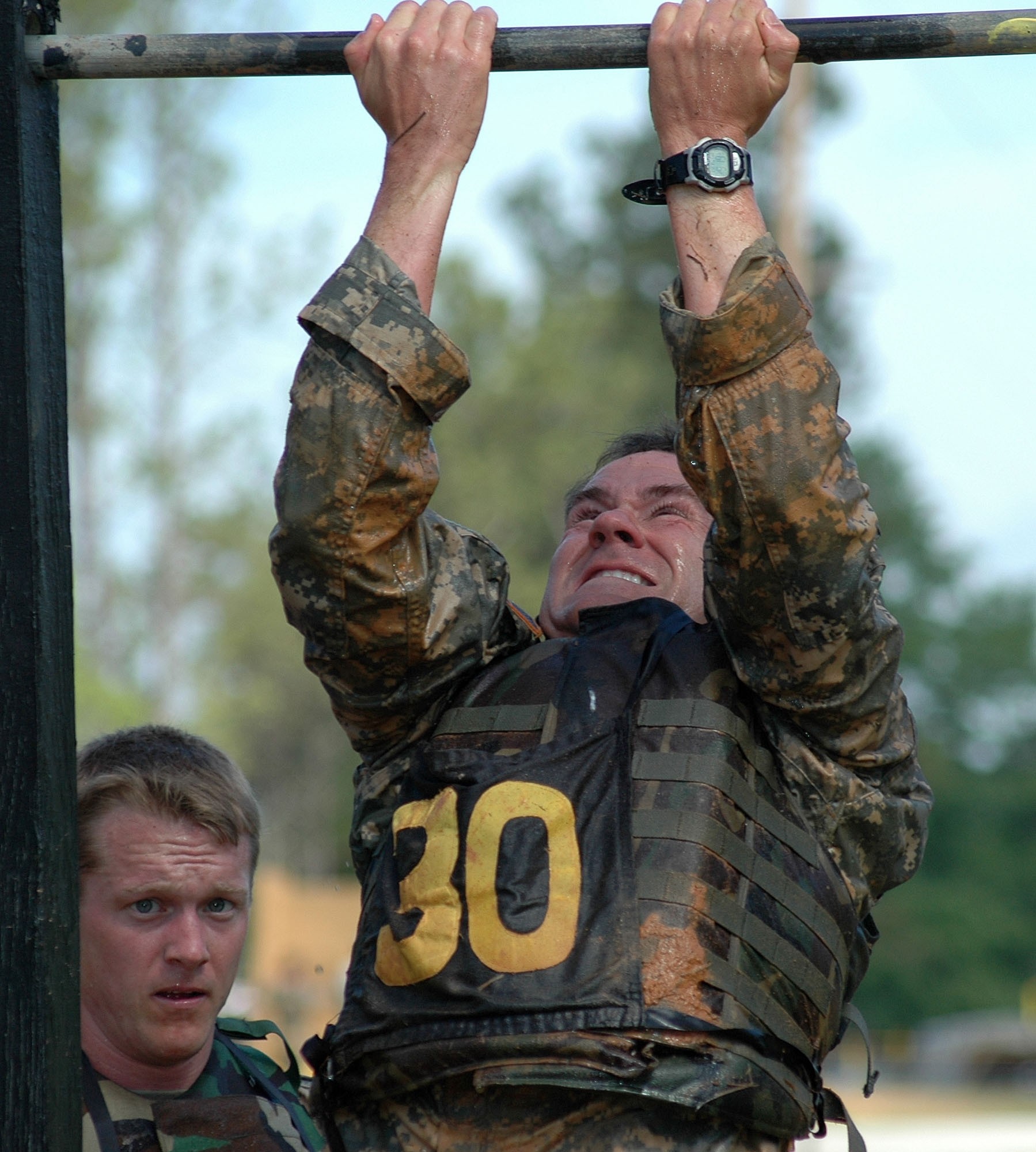
In July 1981, the Ranger Department was asked to design and conduct a "Ranger Olympics" in order to identify the best two-man Ranger team in the Army.
The guidance was clear from the start - the competition should place extreme demands on the team's physical, mental and technical abilities as Rangers.
The standards of performance should vastly exceed those required of the average Soldier.
A group of prominent Florida businessmen, belonging to an organization called the "Chairborne Rangers," stepped forward and offered to sponsor awards for the competitors. These patriotic citizens have long been avid supporters of the U.S. Army and Fort Benning in particular. The Best Ranger Competition was appropriately named in honor of Lt. Gen. David E. Grange Jr., former Ranger instructor, Ranger Department director and commanding general of Fort Benning.
In the 26 years since its inception, the competition has grown from a local Ranger community competition in which the best team of Ranger instructors was identified, to a nationally televised, Armywide event with more than 100 sponsors. The only requirement - participants must have successfully completed the Ranger Course.
This year's field of competitors includes more than 40 teams from force generating units and operational units, both active and Reserve.
Although initially referred to as an "Olympics," the Best Ranger Competition is far from a sporting event. It's training for combat. The three-day competition revolves around events that are derived from areas common to units training for combat. They include physical training, marksmanship, small unit drills, first aid and mobility.
In 60-plus hours, Ranger teams will go non-stop and move by foot approximately 60 miles with a 70-pound load, fire 10,000 rounds, conduct a parachute drop, demonstrate an expertise of orienteering, and demonstrate life saving skills along with 29 other combat related individual Soldier skills.

Social Sharing